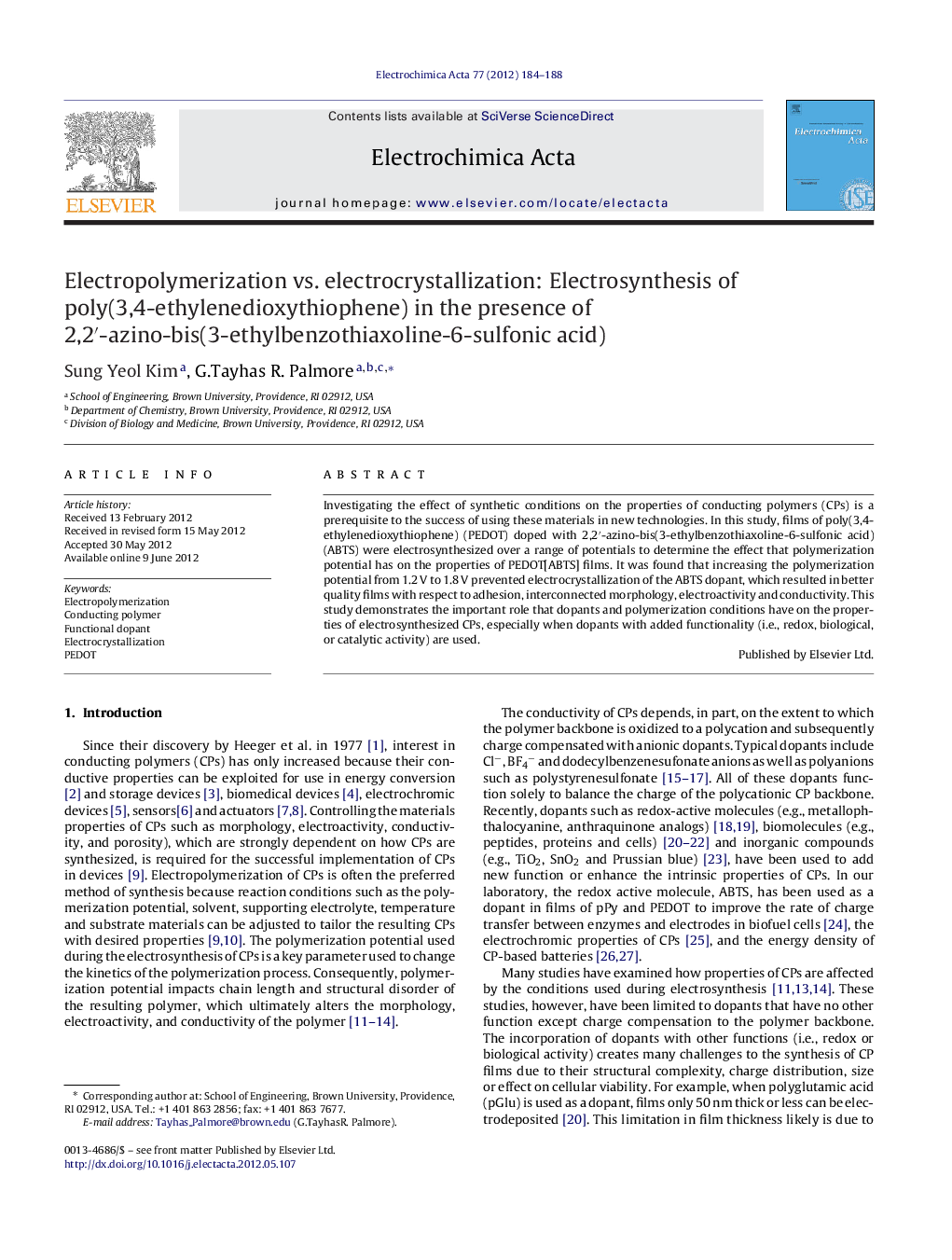| Article ID | Journal | Published Year | Pages | File Type |
|---|---|---|---|---|
| 188454 | Electrochimica Acta | 2012 | 5 Pages |
Investigating the effect of synthetic conditions on the properties of conducting polymers (CPs) is a prerequisite to the success of using these materials in new technologies. In this study, films of poly(3,4-ethylenedioxythiophene) (PEDOT) doped with 2,2′-azino-bis(3-ethylbenzothiaxoline-6-sulfonic acid) (ABTS) were electrosynthesized over a range of potentials to determine the effect that polymerization potential has on the properties of PEDOT[ABTS] films. It was found that increasing the polymerization potential from 1.2 V to 1.8 V prevented electrocrystallization of the ABTS dopant, which resulted in better quality films with respect to adhesion, interconnected morphology, electroactivity and conductivity. This study demonstrates the important role that dopants and polymerization conditions have on the properties of electrosynthesized CPs, especially when dopants with added functionality (i.e., redox, biological, or catalytic activity) are used.
